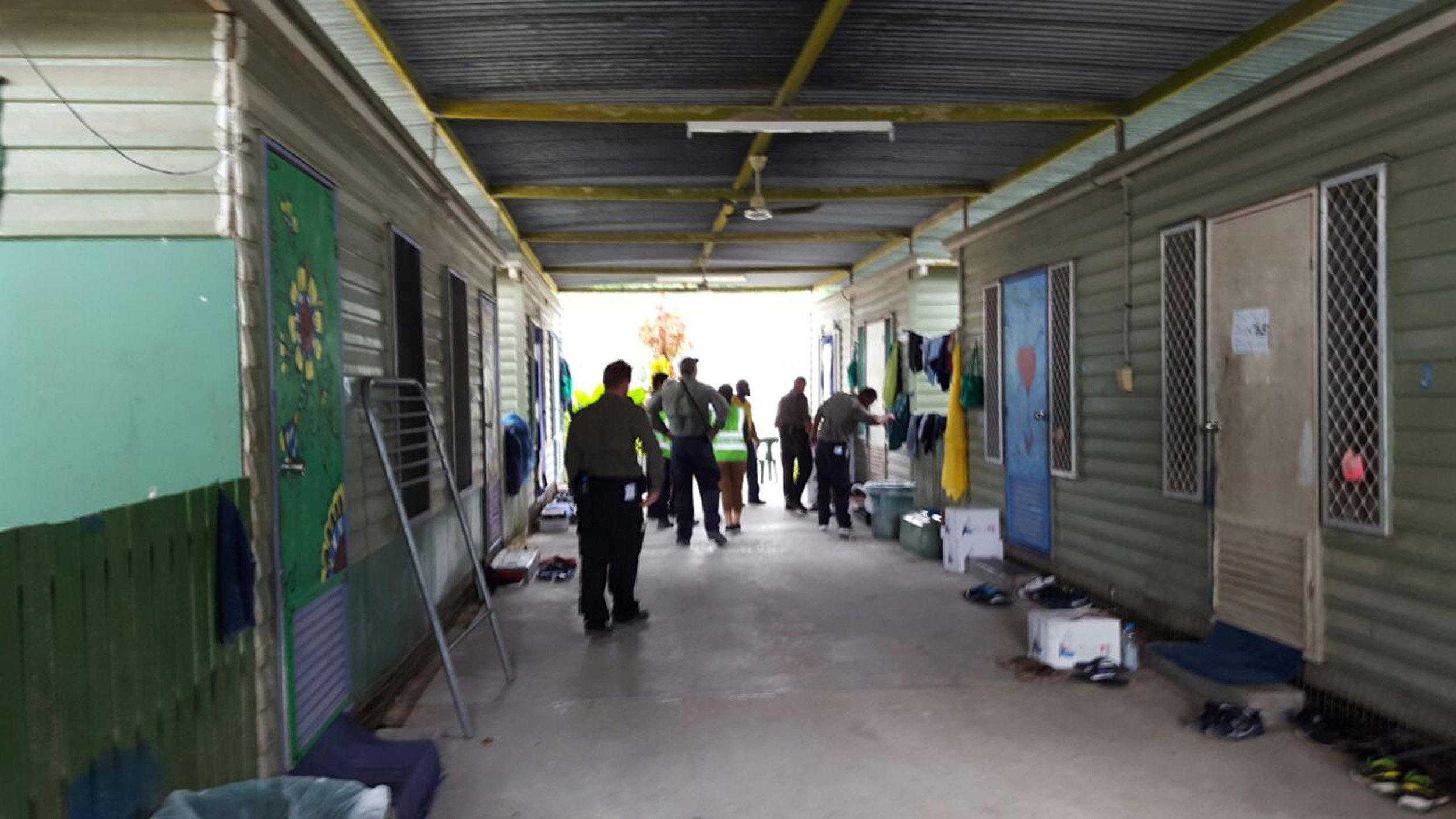
By Colin Packham and Aaron Bunch
SYDNEY (Reuters) – Officials at an Australian immigration centre in Papua New Guinea are increasing pressure on asylum seekers to return to their home countries voluntarily, including offering large sums of money, amid fears a deal for the United States to take refugees has fallen through.
About a dozen Bangladeshi and Nepalese asylum seekers on Manus Island told Reuters they are being repeatedly called to meet with Australian officials and pressured to take amounts of up to $25,000 (£20,042) to return to those countries, or face deportation.
The men, who have been ruled ineligible for refugee status by Papua New Guinea, said officials are also acting with urgency on deportation notices filed weeks or months ago. At least one Nepalese man was removed from his accommodation in the middle of the night last week, they said.
“They told me and others that if you go back voluntarily you will get money about $20,000, if you guys go in group you will get more money,” detainee Mohammad Bilal, a crane driver who says he fled Bangladesh for political reasons, told Reuters about a meeting with Australian officials last week.
Offering money to failed asylum seekers to return home is not illegal. However, the sums being offered by Australian officials have more than doubled since a year ago, and are far above the funds being offered elsewhere.
Germany, for example, recently announced plans to offer up to 1,200 euros (£1,022) to asylum seekers to voluntarily return home.
“Substantial assistance packages are available to help non-refugees depart voluntarily, return home and re-establish their lives in their home country,” Australia’s immigration department said in an emailed statement to Reuters. “In cases where non-refugees refuse to depart voluntarily, the government of PNG has indicated that it will enforce the removal of those individuals, in accordance with normal international practice.”
The department declined to comment in more detail.
Australia does not reveal the cost of its offshore processing programme. However, a 2016 report from Unicef and Save the Children estimated the policy had cost A$10 billion (£6.1 billion) over the previous three years.
DOUBTS ON U.S. DEAL
The Papua New Guinea Supreme Court last year ruled the Manus Island centre, which houses around 860 men, breached human rights and was illegal, adding pressure on Australia to find a new solution.
But U.S. President’s Donald Trump’s immigration ban has thrown doubt over a swap deal agreed in the final months of the previous administration.
The United States committed to take up to 1,250 asylum seekers being held on behalf of Australia on Manus and Nauru, another Pacific island nation. In return, Australia will take refugees from Central America.
The deal sparked a rare diplomatic spat between the two allies, with Trump berating Australian Prime Minister Malcolm Turnbull before reluctantly agreeing to honour the deal, subject to “extreme vetting” of would-be refugees.
While the numbers of asylum seekers trying to reach Australia pale in comparison to those flooding into Europe, losing the U.S. deal would be a major set-back for Turnbull. His centre-right coalition came to power on policies that deny any asylum seeker trying to reach Australia by boat from ever being allowed to settle there.
OFFERING CASH
There are 225 men on Manus currently eligible for deportation as so-called “double negatives” – people who have twice had their refugee claims rejected.
Bangladeshi and Nepalese detainees are being targeted for both deportation and voluntary return, human rights advocates and lawyers said, because Iran does not accept deported citizens and international law prevents the return of people to war torn countries such as Syria and Afghanistan. Nationals from Pakistan, Sri Lanka and Myanmar are also held in the centre.
Bangladeshi detainee Mohammad Rasel told Reuters he was offered $19,500 to return to Bangladesh voluntarily, more if he convinced a group of his countrymen to go with him, during interview with an Australian Border Force official on Manus last Tuesday.
Another detainee who requested anonymity told Reuters that ABF officials met with a group of twelve Nepalese men on Friday, telling them they could either accept an offer of between $10,000 and $25,000 to go home voluntarily, or be deported.
Lawyers and refugee advocates have raised concerns about process.
“The increased focus by the Australian and PNG governments on deporting people with negative protection assessments is deeply troubling,” said Sanmati Verma, a lawyer at Clothier Anderson Immigration Lawyers who represents several people on Manus and Nauru. “All of the circumstances indicate that those people have never had their claims for protection fairly, legally or impartially assessed.”
The Papua New Guinea government did not respond to emailed and telephoned requests for comment on its refugee assessment practices.
Sally Thompson from Refugee Rights Action Network said long delays before processing began seriously compromised detainees’ mental health and many were afraid to speak freely before the migration agents supplied by the Australian government.
“Those with final negative assessments from PNG Immigration have been unable to access pro bono lawyers with standing in PNG Courts who can challenge these decisions on procedural grounds,” she said.
(Additional reporting by Serajul Quadir in DHAKA; Writing by Jane Wardell; Editing by Lincoln Feast)
Copyright 2017 Thomson Reuters. Click for Restrictions.


